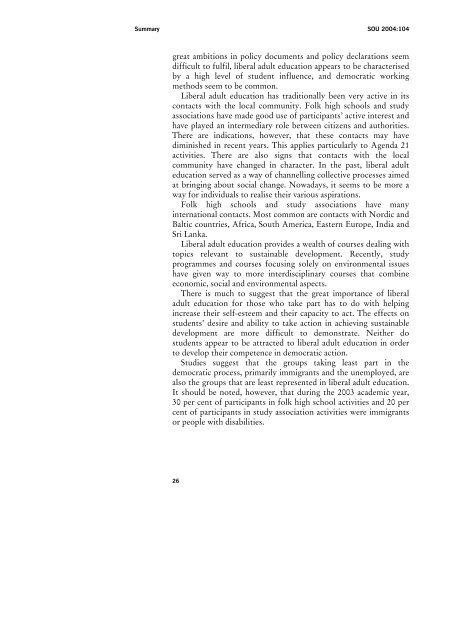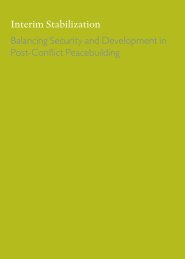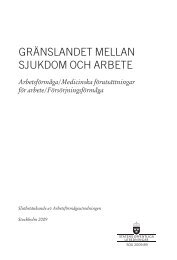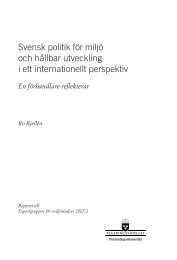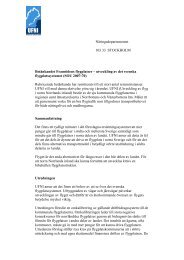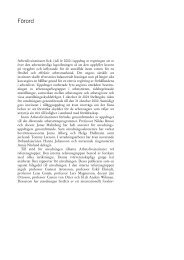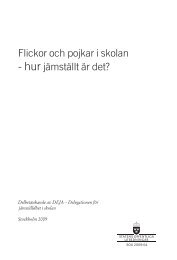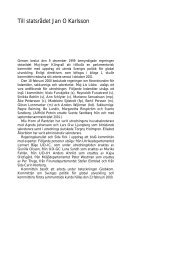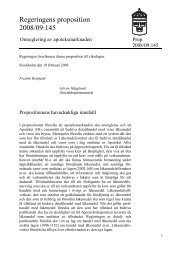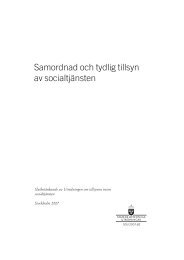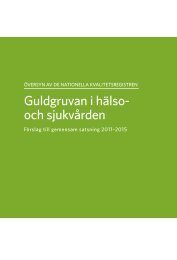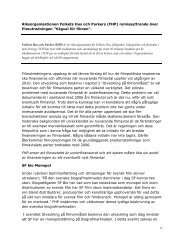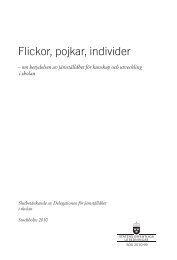Att lära för hållbar utveckling - Regeringen
Att lära för hållbar utveckling - Regeringen
Att lära för hållbar utveckling - Regeringen
You also want an ePaper? Increase the reach of your titles
YUMPU automatically turns print PDFs into web optimized ePapers that Google loves.
Summary SOU 2004:104great ambitions in policy documents and policy declarations seemdifficult to fulfil, liberal adult education appears to be characterisedby a high level of student influence, and democratic workingmethods seem to be common.Liberal adult education has traditionally been very active in itscontacts with the local community. Folk high schools and studyassociations have made good use of participants’ active interest andhave played an intermediary role between citizens and authorities.There are indications, however, that these contacts may havediminished in recent years. This applies particularly to Agenda 21activities. There are also signs that contacts with the localcommunity have changed in character. In the past, liberal adulteducation served as a way of channelling collective processes aimedat bringing about social change. Nowadays, it seems to be more away for individuals to realise their various aspirations.Folk high schools and study associations have manyinternational contacts. Most common are contacts with Nordic andBaltic countries, Africa, South America, Eastern Europe, India andSri Lanka.Liberal adult education provides a wealth of courses dealing withtopics relevant to sustainable development. Recently, studyprogrammes and courses focusing solely on environmental issueshave given way to more interdisciplinary courses that combineeconomic, social and environmental aspects.There is much to suggest that the great importance of liberaladult education for those who take part has to do with helpingincrease their self-esteem and their capacity to act. The effects onstudents’ desire and ability to take action in achieving sustainabledevelopment are more difficult to demonstrate. Neither dostudents appear to be attracted to liberal adult education in orderto develop their competence in democratic action.Studies suggest that the groups taking least part in thedemocratic process, primarily immigrants and the unemployed, arealso the groups that are least represented in liberal adult education.It should be noted, however, that during the 2003 academic year,30 per cent of participants in folk high school activities and 20 percent of participants in study association activities were immigrantsor people with disabilities.26


